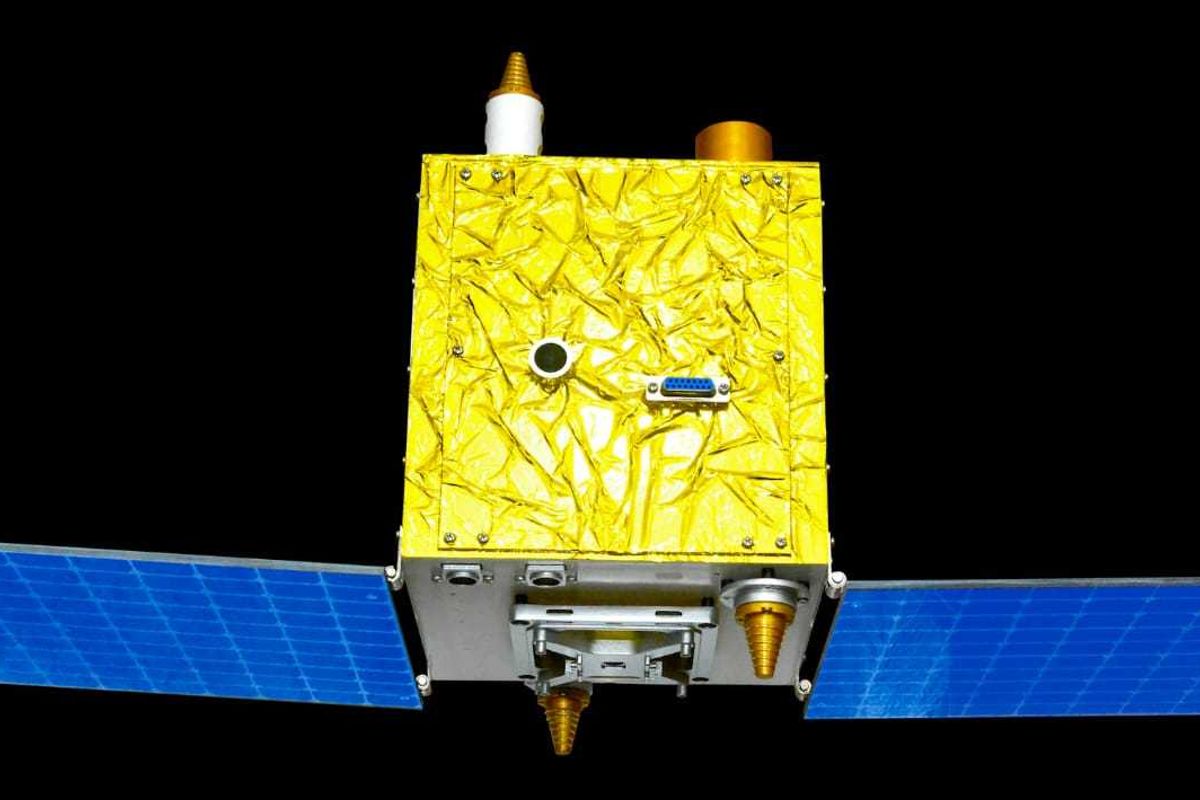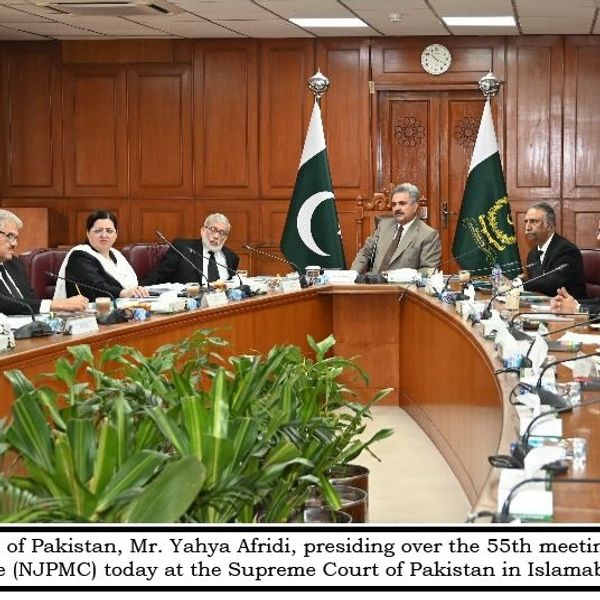Pakistan’s ICUBE-Q wins global honor with Chang’e-6 mission
Pakistan enters global space elite as ICUBE-Q joins Chang’e-6 in winning 2025 IAF Space Award honor

Javed Hussain
Correspondent
I have almost 20 years of experience in print, radio, and TV media. I started my career with "Daily Jang" after which I got the opportunity to work in FM 103, Radio Pakistan, News One, Ab Tak News, Dawn News TV, Dunya News, 92 News and regional channels Rohi TV, Apna Channel and Sach TV where I worked and gained experience in different areas of all three mediums. My journey from reporting to news anchor in these organisations was excellent. Now, I am working as a correspondent with Nukta in Islamabad, where I get the opportunity of in-depth journalism and storytelling while I am now covering parliamentary affairs, politics, and technology.

The International Astronautical Federation honors China’s Chang’e-6 mission for the historic first return of lunar samples from the Moon’s far side.
Courtesy: Dr Qamarul Islam
Pakistan has earned a place in global space history as its ICUBE-Q lunar satellite became part of the award-winning Chang’e-6 lunar mission, which has received the prestigious 2025 IAF Space Award — the highest accolade in international space exploration.
The award, presented by the International Astronautical Federation (IAF), recognizes the Chang’e-6 mission of the China National Space Administration (CNSA) for achieving a historic breakthrough: the successful return of samples from the far side of the Moon, a first in human history.
The mission carried four international payloads, including Pakistan’s ICUBE-Qamar (ICUBE-Q) satellite. It was developed under the leadership of Dr Qamarul Islam, professor at the Institute of Space Technology (IST) and project director of ICUBE-Q.
Landmark for Pakistan
This marks the first time a Pakistani space project has been associated with the IAF Space Award, placing the country among a distinguished group of nations honored for landmark space achievements.
Past winners include the James Webb Space Telescope (United States, Canada, and Europe), India’s Chandrayaan-3, Japan’s Hayabusa-2, and China’s Tianwen-1 Mars mission.

“This is a proud moment for Pakistan,” said Dr Qamarul Islam. “Our ICUBE-Q satellite represented Pakistan on a mission recognized at the highest global level. It proves that with international collaboration, even the most complex space challenges can be overcome.”
Global collaboration
The ICUBE-Q project was made possible through cooperation with Shanghai Jiao Tong University (SJTU) and CNSA, supported by SUPARCO, Pakistan’s space agency, APSCO (Asia-Pacific Space Cooperation Organization), and IST.
Dr Qamar and his team have been invited to attend the 76th International Astronautical Congress (IAC) in Sydney, Australia, from Sept. 29 to Oct. 4, where the award will be officially presented. He or his representative will also deliver a Highlight Lecture on ICUBE-Q alongside international collaborators.
Building on a legacy
Dr Qamar is no stranger to pioneering milestones. In 2013, he led the launch of iCUBE-1, Pakistan’s first university-built CubeSat, which marked the country’s entry into small satellite development.
The success of ICUBE-Q continues that legacy, cementing Pakistan’s growing role in deep space science and innovation.










Comments
See what people are discussing